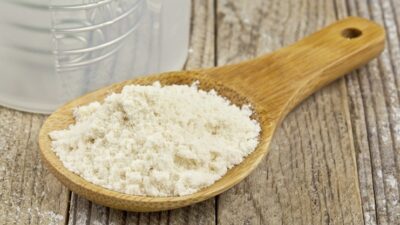
In a world that often measures success through outward appearances and instant gratification, the concept of fitness has evolved into something far greater than the traditional pursuit of a toned body. Today, fitness is no longer simply about working out or adhering to a strict diet; it represents a holistic approach to overall well-being—an intricate balance between the physical, mental, and emotional aspects of health. As we navigate through the complexities of modern life, fitness has become a multifaceted journey, one that requires commitment, mindfulness, and an understanding that true well-being encompasses much more than just the body.
At its core, fitness is about optimizing your quality of life. It is about feeling strong, capable, and energized, not just in physical terms but also mentally and emotionally. While we often think of fitness as something one does at the gym or through structured exercise routines, it is, in fact, a way of life that integrates movement, nutrition, rest, and mindfulness into every facet of existence.
The Physical Foundation: Strength, Stamina, and Flexibility
Physical fitness, in its most visible form, forms the foundation of well-being. It is the first area of focus for most people when embarking on a fitness journey, and for good reason—our bodies are the vessels through which we experience life. The goal of physical fitness is not just aesthetic or performance-based, but rather a way to ensure that the body functions optimally, allowing us to live our lives fully and without limitations.
The core components of physical fitness include strength, cardiovascular health, flexibility, and endurance. Strength training, often involving exercises like weightlifting, bodyweight exercises, or resistance bands, is vital for building muscle mass, increasing bone density, and enhancing functional strength. Strength isn’t just about lifting heavy weights; it also includes the capacity to perform everyday tasks with ease, such as carrying groceries or lifting children. Moreover, maintaining muscle mass is crucial for metabolic health and reducing the risk of injury, especially as we age.
Cardiovascular fitness, typically developed through activities like running, cycling, or swimming, focuses on the heart and lungs. A healthy cardiovascular system ensures that oxygen and nutrients are delivered efficiently to the body’s tissues, which in turn supports overall energy levels and stamina. Endurance exercises, especially when performed consistently over time, lead to increased stamina, reducing fatigue and promoting overall vitality.
Flexibility, often overlooked in fitness regimens, is essential for joint health, range of motion, and injury prevention. Regular stretching, yoga, or Pilates can significantly improve flexibility, which is crucial not only for athletic performance but also for everyday mobility and posture.
To maximize the benefits of physical fitness, it is important to adopt a well-rounded exercise routine that includes a combination of these components. But fitness is not just about how much or how intensely we train—it’s about consistency and recovery.
The Mental Dimension: Strengthening the Mind
Mental fitness is perhaps one of the most underappreciated aspects of overall health, yet it is undoubtedly just as important as physical fitness. The mind and body are deeply interconnected, and a healthy mind supports a healthy body, just as a healthy body supports a strong mind. Mental fitness involves developing cognitive resilience, emotional regulation, and stress management skills.
In a world where mental health issues are becoming more prevalent, it is crucial to take intentional steps to build mental resilience. This can be achieved through practices that enhance mindfulness, promote emotional balance, and foster a positive outlook on life. Meditation, mindfulness, and deep-breathing exercises are excellent ways to reduce stress, enhance focus, and cultivate a sense of calm. Engaging in regular mindfulness practices has been shown to lower cortisol levels, the hormone associated with stress, while also promoting neuroplasticity—helping the brain adapt to new challenges and enhancing cognitive flexibility.
The practice of mental fitness extends to our ability to handle adversity. Life’s inevitable challenges—whether in our personal, professional, or social spheres—require emotional resilience. Building emotional resilience means developing the ability to bounce back from setbacks, manage anxiety, and maintain a balanced perspective during times of stress. Cognitive-behavioral techniques, such as journaling or reframing negative thoughts, can be highly effective tools for fostering a more resilient mindset.
Moreover, mental fitness is also about setting goals and maintaining focus. A sharp, focused mind leads to better decision-making, increased productivity, and the ability to stay committed to long-term objectives. A mentally fit individual is not only able to handle stress with grace but is also equipped to take on new challenges with confidence and optimism.
Nutritional Fitness: Nourishing the Body and Mind
No fitness journey is complete without addressing the importance of nutrition. The fuel we provide our bodies directly impacts our energy, performance, and recovery. Just as a high-performance car requires premium fuel, so too does our body require the proper nutrients to function at its best. Nutritional fitness is about understanding the unique needs of your body and providing it with the right balance of macronutrients (proteins, fats, carbohydrates) and micronutrients (vitamins and minerals) to optimize both physical and mental health.
Protein is the building block of muscle tissue and is essential for recovery and growth. Those engaged in strength training or high-intensity activities will need to consume more protein to support muscle repair. Carbohydrates provide the body with energy, especially during endurance activities. Healthy fats, found in foods such as avocados, nuts, and olive oil, are crucial for brain function, hormone production, and overall cellular health.
Micronutrients, although required in smaller quantities, are no less important. Vitamins and minerals play a vital role in everything from immune function to bone health. For instance, magnesium helps regulate muscle function and sleep patterns, while vitamin D is essential for bone health and immune system support. Consuming a diverse, nutrient-dense diet—rich in fruits, vegetables, lean proteins, and whole grains—ensures that the body is equipped to perform at its best.
Equally important to nutrition is hydration. Water is critical for nearly every bodily function, from digestion to temperature regulation, and staying hydrated ensures that the body performs at its peak. Dehydration can lead to fatigue, decreased cognitive function, and poor exercise performance, making it essential to drink water throughout the day, particularly before, during, and after physical activity.
Rest and Recovery: The Unsung Heroes of Fitness
One of the most overlooked aspects of fitness is rest and recovery. It’s easy to become fixated on the effort and intensity of workouts, but recovery is where the real magic happens. The body doesn’t grow or repair during exercise; it does so during rest. Adequate sleep and recovery allow the muscles to rebuild, energy stores to be replenished, and the mind to reset.
Sleep is perhaps the most essential form of recovery. During deep sleep, the body releases growth hormones that promote muscle repair and tissue regeneration. Quality sleep also helps regulate mood, improve cognitive function, and support the immune system. Adults should aim for seven to nine hours of sleep each night, ensuring that it is restorative and uninterrupted.
In addition to sleep, active recovery, such as light stretching, foam rolling, or gentle yoga, can help release muscle tension and prevent stiffness. Active recovery promotes blood flow, which helps transport oxygen and nutrients to the muscles, speeding up the healing process and preventing soreness.
Conclusion: Fitness as a Lifestyle
True fitness is not about temporary fixes or superficial goals. It is a lifestyle—a commitment to enhancing your physical, mental, and emotional well-being over the long term. By embracing a holistic approach that includes regular physical activity, mental conditioning, proper nutrition, and adequate rest, individuals can achieve lasting health and vitality.
Fitness is a journey, not a destination, and it is one that requires ongoing dedication, self-awareness, and patience. When approached with mindfulness and balance, fitness becomes more than just a way to look or feel good—it becomes a means to live a fuller, more vibrant life. The key to lasting well-being lies not in extreme efforts but in consistent, sustainable habits that nourish the body, mind, and soul.






